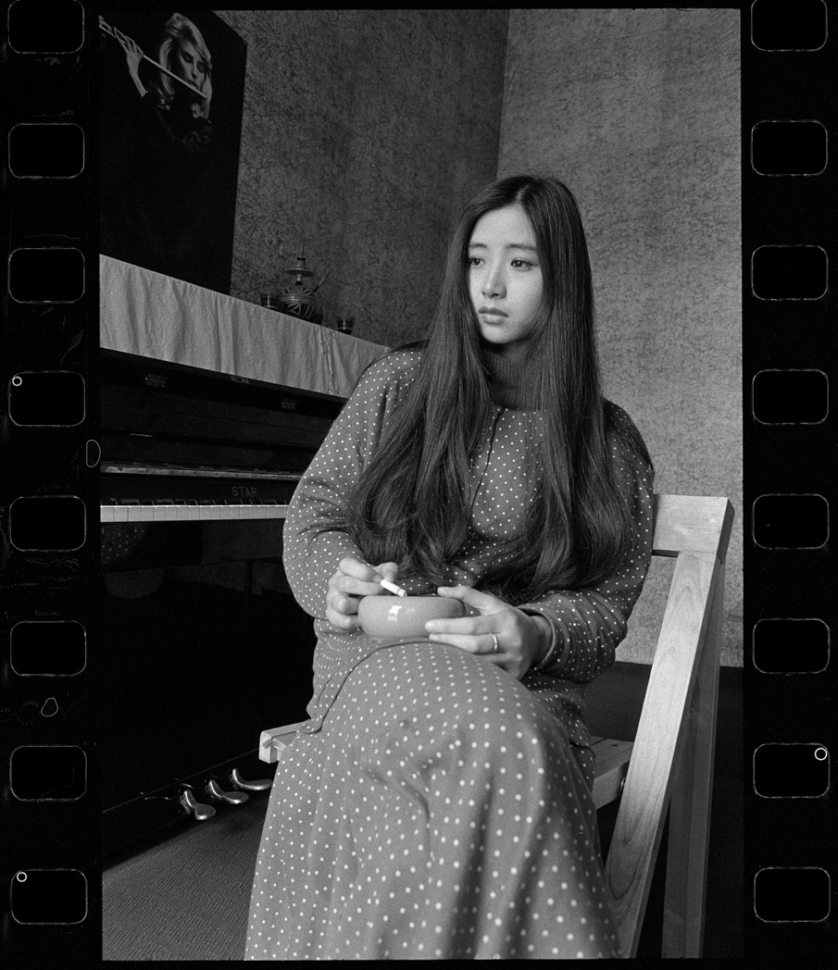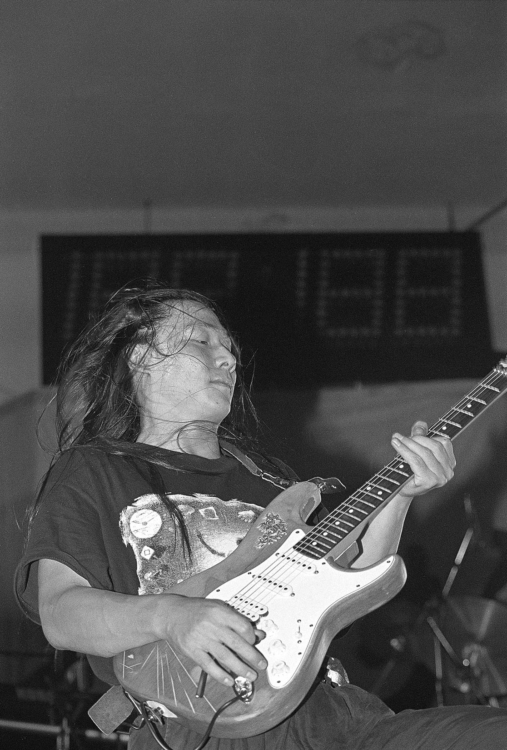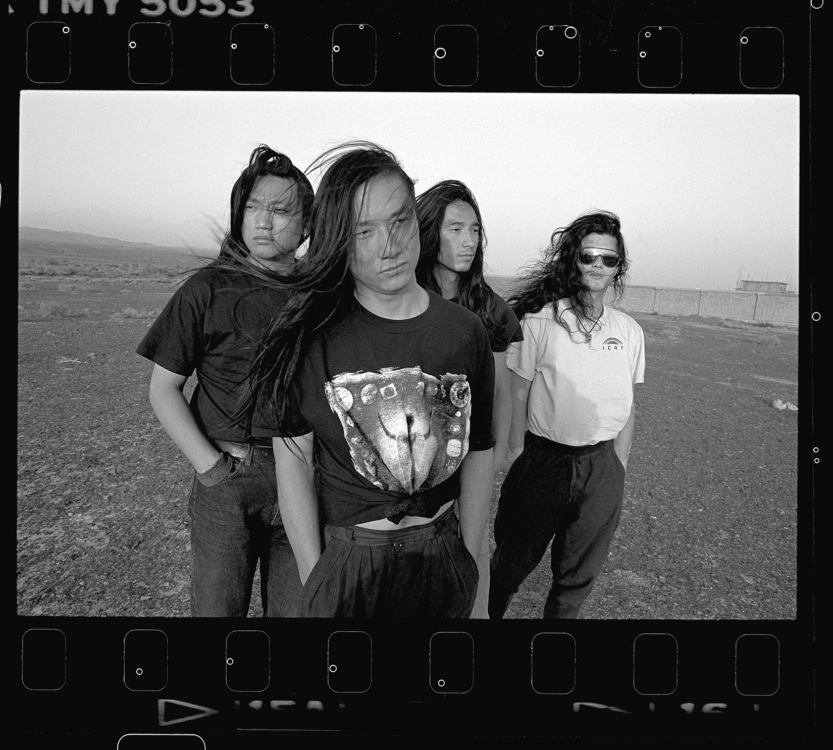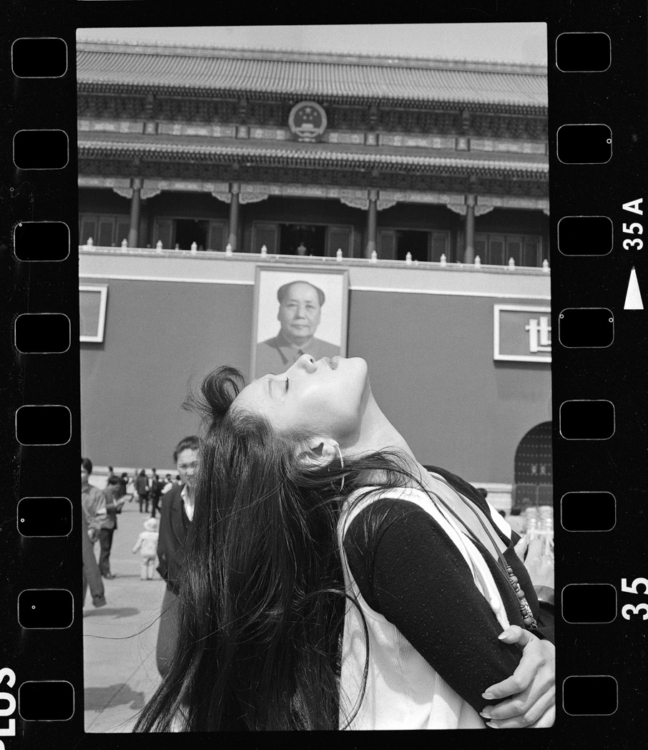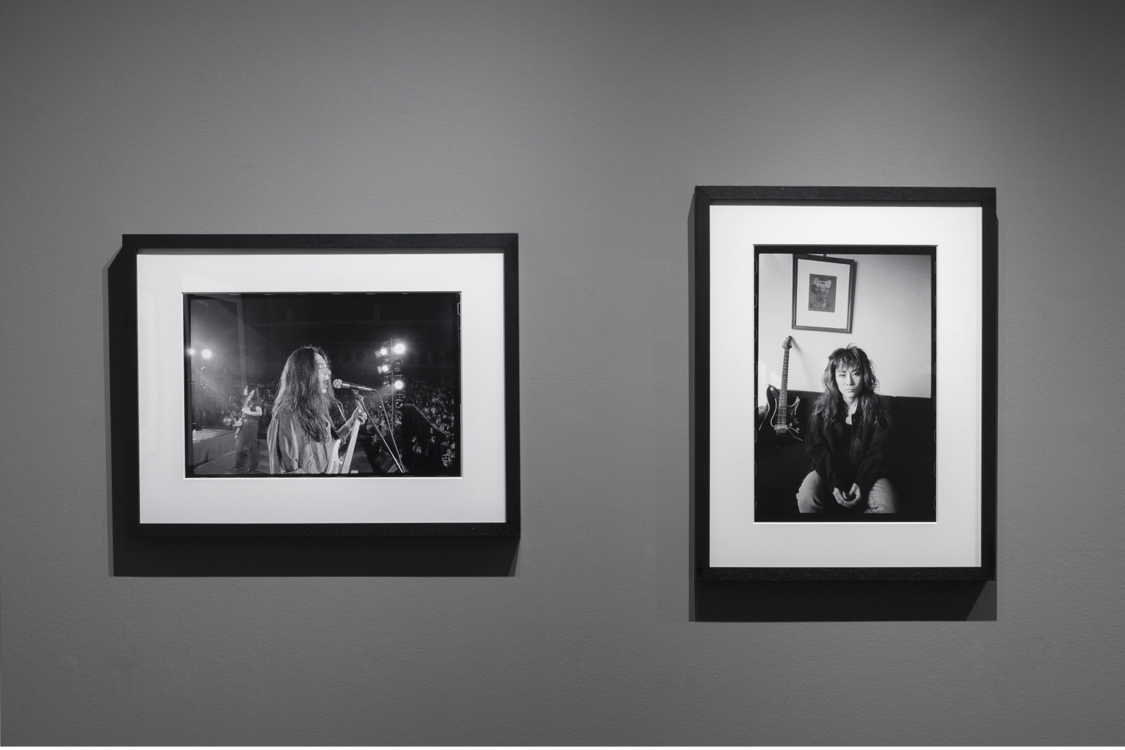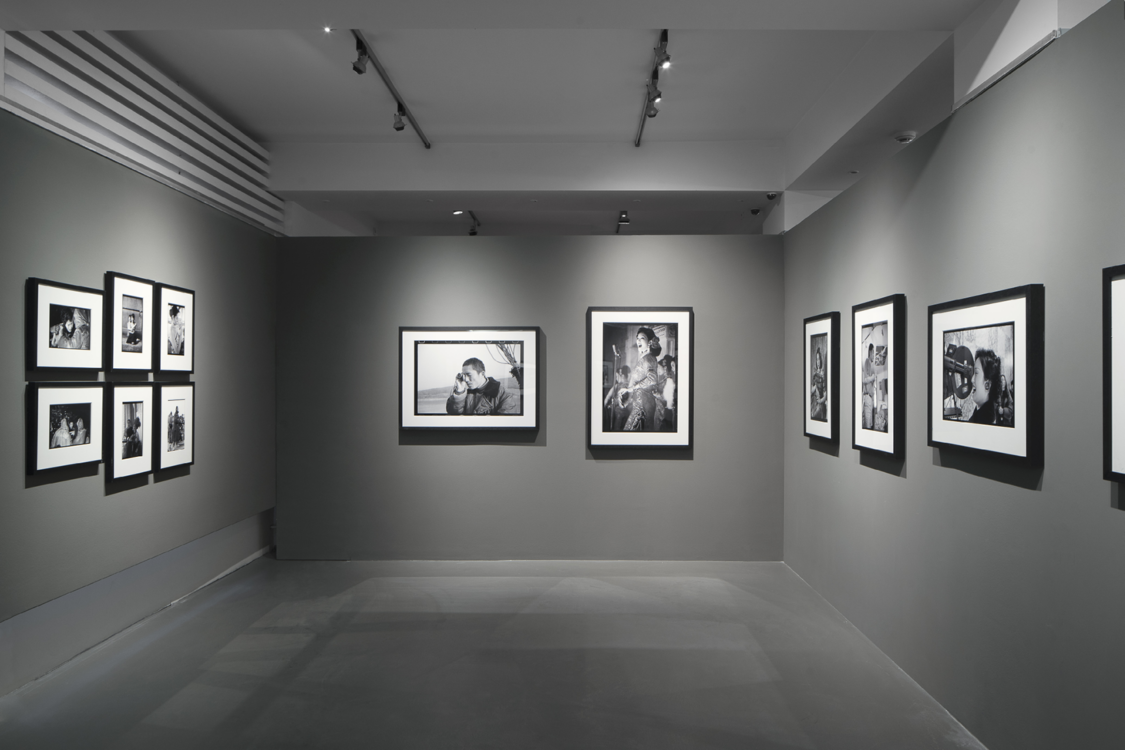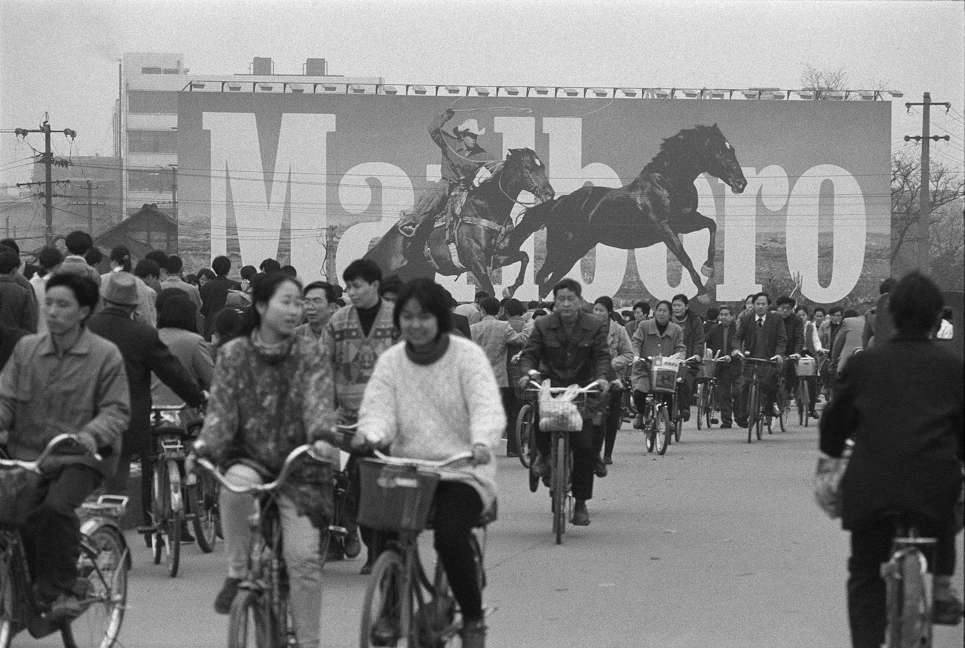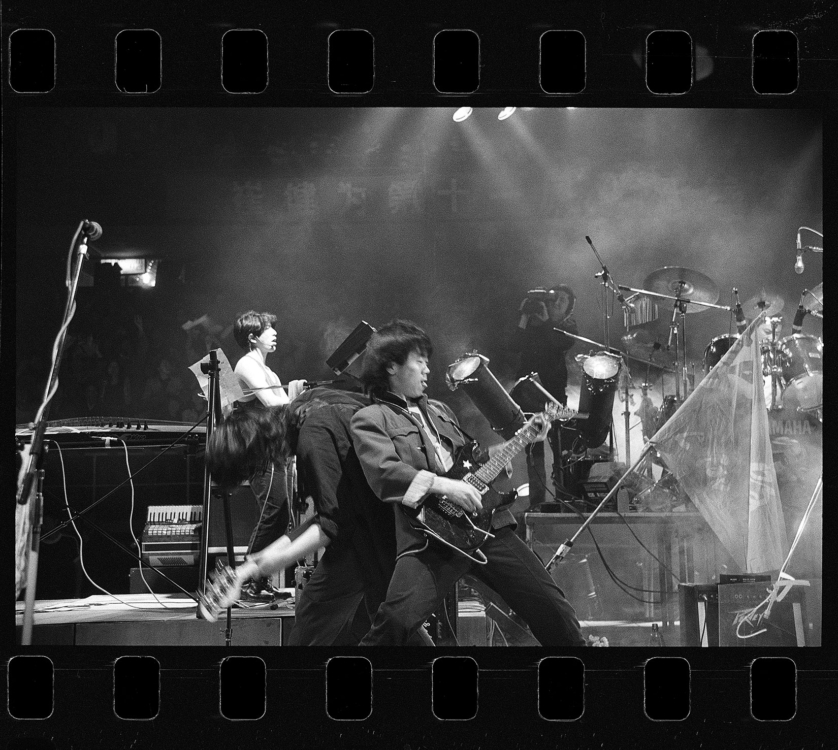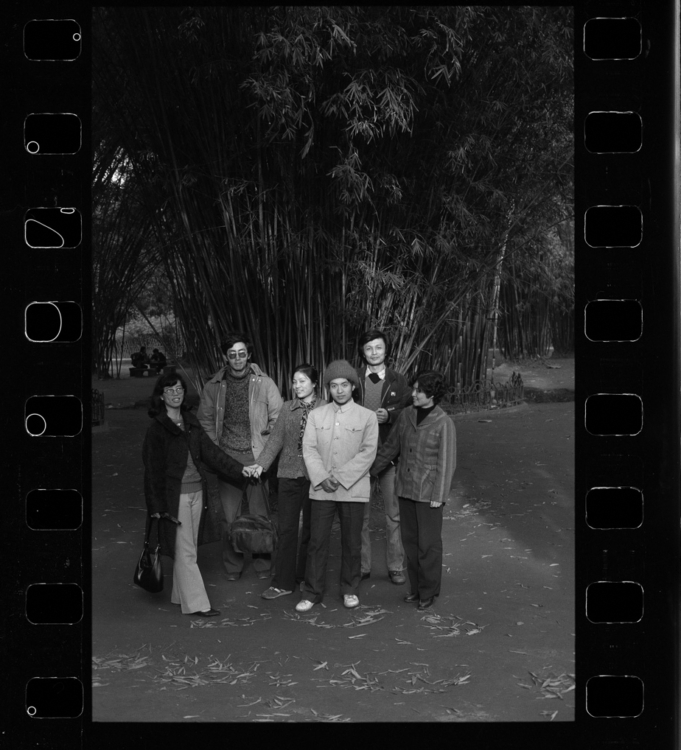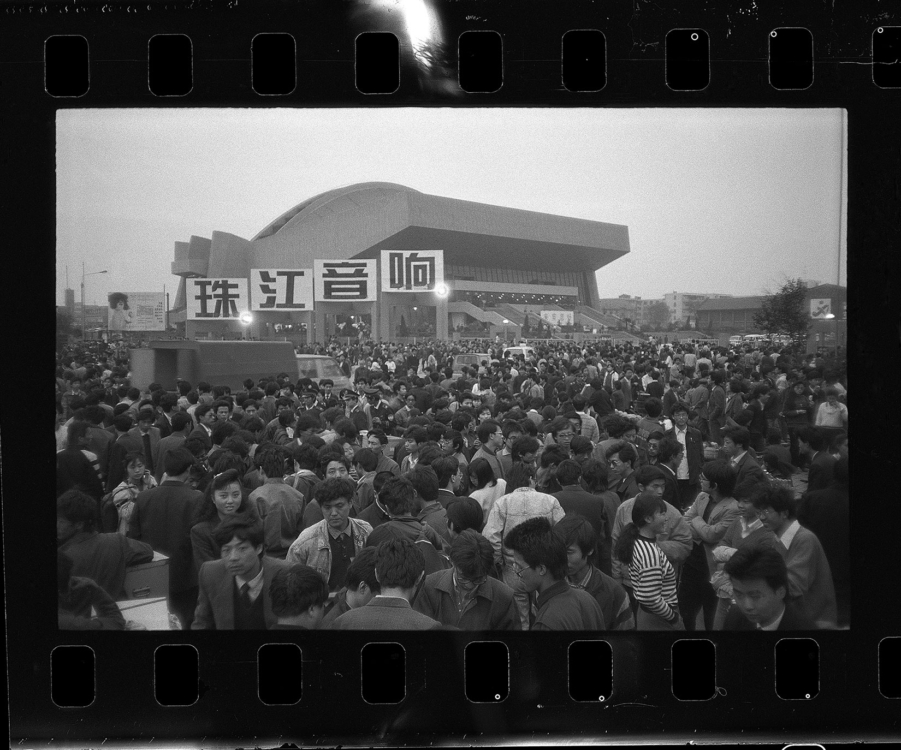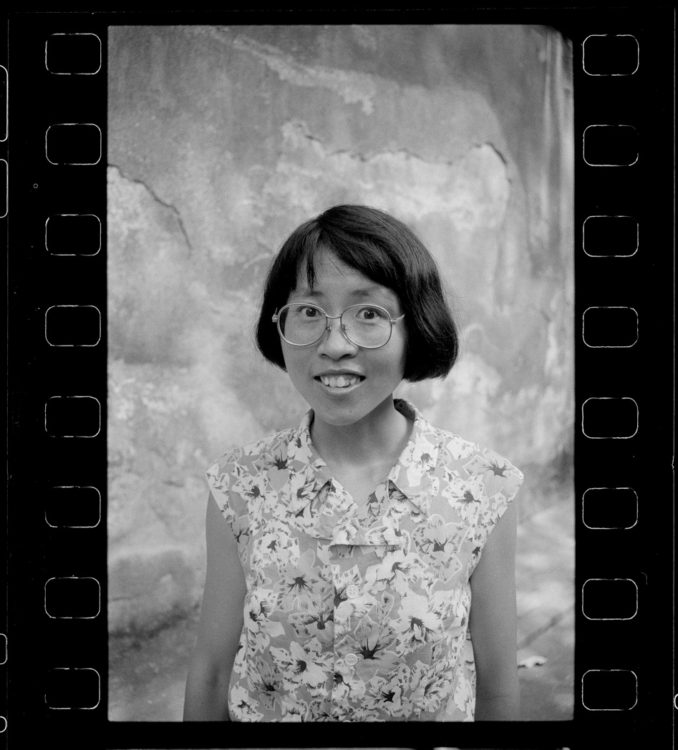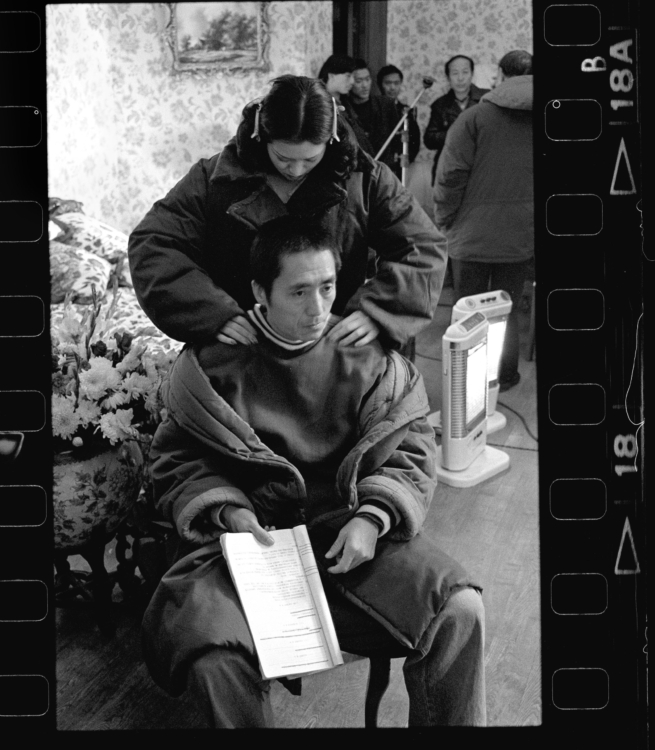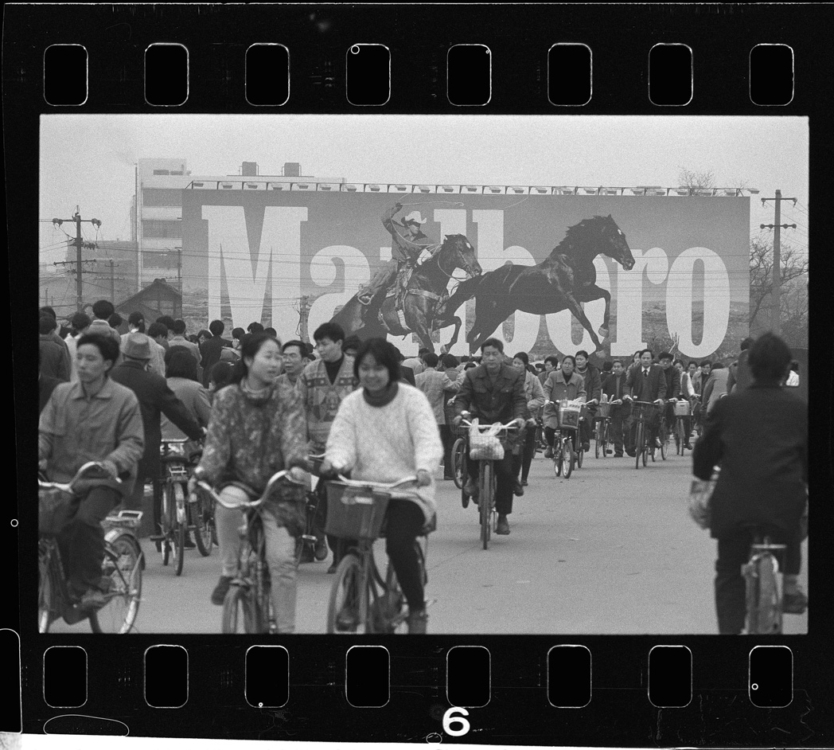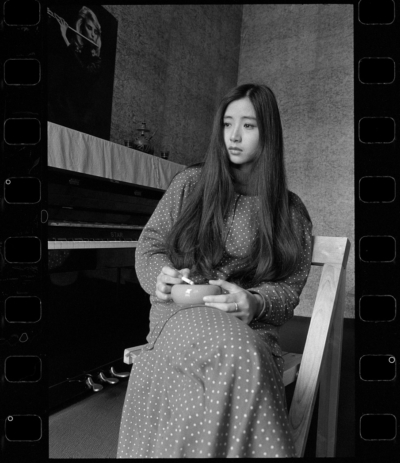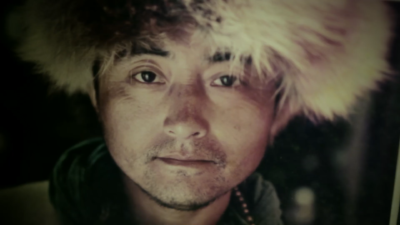Xiao Quan: Our Generation – Portraits of K. 8. 12. 2020 – 30. 5. 2021
Curator: Lü Peng
Chinese photographer Xiao Quan was present for all the important events of the 1980s as China’s independent art scene was taking shape. He consistently mapped all of the unofficial historical milestones during the emancipation of arts communities in the northern and southern provinces and, naturally, participated in those events. He travels to remote areas of China as well as to western metropolises and has released a number of excellent publications devoted to certain localities and to the different people whose lot it is to live in such places, frequently under a range of diametrically opposed material conditions.
When we exhibited Xiao Quan’s photographs in China, we called the exhibition Our Generation – Portraits of the Past. For the Prague exhibition, however, I have come up with a more apt and perhaps more eloquent subtitle: Portraits of K. I think this is well suited to the city where Franz Kafka created the character of the land surveyor K. who tried in vain all his life to reach the castle to do his work.
Xiao Quan calls the characters in his photographs “our generation”, whether they are famous writers, artists and musicians or completely unknown, ordinary people. That generation can, to some extent, be characterized as the K. generation, those who “heard the call of the times” especially in the 1980s and somewhat into the 1990s, those who, once everyone was informed in 1978 that China was entering a post-Cultural Revolution era of economic reforms and opening up to the world, moved forward toward a better tomorrow together with the whole country.
This is the generation that extricated themselves from the influence of Russian and Soviet culture and began to devour works by Friedrich Nietzsche, Arthur Schopenhauer, Sigmund Freud, Jean-Paul Sartre and other Western philosophers and thinkers. A generation that moved from reading Leo Tolstoy, Anton Pavlovich Chekhov and Maxim Gorky to reading Charles Dickens and Honoré de Balzac, and shortly afterwards felt deeply in sync with Rainer Maria Rilke, Paul Eluard, Albert Camus and Hermann Hesse. A generation that heard revolutionary songs on the radio all their childhood and then listened to compositions by Sebastian Bach, Wolfgang Amadeus Mozart, Frederic Chopin, Sergei Rachmaninoff, Igor Stravinsky and Arnold Schoenberg. It is a generation that proceeded from paintings by Ilya Repin, Vasily Surikov, Valentin Serov and Konstantin Maksimov to paintings by Jean-François Millet and the Barbizon School, shortly afterwards absorbing the works of Paul Gauguin, Vincent van Gogh, Edvard Munch, Pablo Picasso, Salvador Dalí and Vasily Kandinsky, who quickly learned to understand Marcel Duchamp and Joseph Beuys, a generation that had no problem absorbing modern and contemporary art and its means of expression. In short, it is a generation that has set out to discover the West anew, imagining European civilization and stepping into a new world full of ideals. At least in the 1980s and early 1990s, Chinese intellectuals, writers and artists seemed to be on the threshold of something beautiful.
Over the course of time, however, “our generation” became increasingly aware that diligent study and tireless reading did not offset the serious shortcomings of their early childhood educations. Although they gathered a lot of knowledge, their thinking remained burdened by the layers of the past. Although they had high goals, they constantly encountered one loss after another on the way to achieving them. Although they became acquainted with the fruits of the wisdom of the human spirit, they did not know the solution to their ever-recurring questions and problems. For a time they became the vanguard of ideas, but today they have feelings of exasperation, frustration and deep sadness. Although they themselves have learned to use their own reason, they cannot prevent the decomposition of rationality around them. They have cultivated an individualistic view of the world, but they can hardly fortify its fragility enough to withstand external pressures. For 40 years, despite all the wounds and scars involved, they threw themselves fearlessly into new struggles, but today, in isolation, they defend their small bastions, scattered to all corners of the earth and the world. Few of them still feed the hope that they will be able to “reach the castle”.
In his photographs, Xiao Quan captured a diverse range of prominent personalities in the art world of the time – writers, poets, musicians, filmmakers, painters and actors. He watched and photographed them in the context of their personal lives and work. Taken together, his photographs form a unique documentary about a time in China’s rather recent past. However, Xiao Quan was not just an observer or uninvolved witness. It was the other way round – he and his camera became part of “our generation”, and in his youthful zeal, he and others attempted again and again to get to the castle. Intuitively, maybe even instinctively, he recorded that time through his lens in all its variability, in a fragmentary, random way. Xiao Quan has never stopped working this way. He is an observer of all the alleyways and the nooks, whether in cities or human souls, the small details that make life colorful. Thus, at various moments, he immortalized a generation as they deeply inhaled the electrifying air charged with the liberalization of conditions in their country, providing us thereby today with deep portraits of a not too distant past. The photographer’s intuition and emotions lie behind all the scenes captured, as if he shot them directly with his nerve endings. In this respect, Xiao Quan has gone in the same direction as Robert Capa, Henri Cartier-Bresson or Marc Riboud before him: he perpetuates the fleeting moments of the eloquent everyday precisely, gently, and with detachment.
Xiao Quan is a prominent representative of Chinese photojournalism from the post-Cultural Revolution period. Documentary photography developed in China in the 1980s at the same time as aesthetic and formalistic photography, but in contrast to that genre, Xiao Quan does not focus on elements of “beauty”. He presents his subjects to viewers directly, as a result of his technical mastery, producing the image without the need for its aesthetic processing. The documentary photographer perceives the objects of his interest against the background of everyday reality and tensions in society, within the context of contemporary issues and tectonic shifts movements. This camp includes photographers whose work has made it into the history of contemporary Chinese photography, such as Lü Nan (born 1962), Zhang Haier (born 1957) and Han Lei (born 1967). Like them, in his work Xiao Quan leaves aside current aesthetic norms and directs his attention to the barely perceptible, fleeting moment, to an exclusively personal understanding of the moment’s atmosphere, expression and flavor. Or, perhaps even better, his works reveal something about the nature of human existence between heaven and earth which is often invisible to the human eye. The poet Zhong Ming once wrote years ago about Xiao Quan: “Xiao Quan is a loner. When his personal world collapsed, he packed his things and went to all corners of the world to capture and immortalize the personal, intimate traces of his generation with his lens. At night, he curled his fragile body into a ball in the aisle of a train, on a floor that smelled of urine. He wore out his sensitive, poetic soul with the darkness of foreign lands, the solitude of inns and crowded buses, unhealthy food, foraging, conversations, and endless waiting so he could dive, gently and unnoticed, into the secret worlds of other loners.” (Even More Alone and Yet Even Better, 1992)
Zhong Ming has summed it up exactly. Xiao Quan and the members of “our generation” were true loners of their time. However, the rapidly changing society greatly complicated the stories of the K. generation’s lives. When Xiao Quan set out on his travels in Chinese cities alone, the painter Zhang Xiaogang wrote a letter to Mao Xuhui about his own loneliness at the time: “Whether I find myself in lazy, decadent Chengdu or inhospitable Huangjueping in Chongqing, I can’t get rid of loneliness anywhere. Only by picking up a paintbrush can I drive away the emptiness and despair attacking me day and night. And I am convinced that it is not just me who is experiencing something like this.” (October 3, 1990) All sensitive souls, all seekers and skeptics, experienced intense isolation at that time. Xiao Quan understood that loneliness very well, he was one of them.
Xiao Quan took many portraits of “our generation” on his demanding journeys. They are not celebratory portraits of gods and demigods, but rather the dusty faces, the battered and scarred bodies of individual people, their joys and sorrows, their hopes and hopelessness, their searching and groping, their self-confidence and frustrations that have formed and changed over time, those who influenced Chinese society through their poems, short stories and novels, paintings, films, dance, music and images, who wanted to prove something, who together with their generation lived and shaped the story of their time and left an indelible mark on the memory of our past.
Despite this, for all these Chinese K., the “castle” is still out of reach…
Lü Peng
Monday, 3 August 2020

